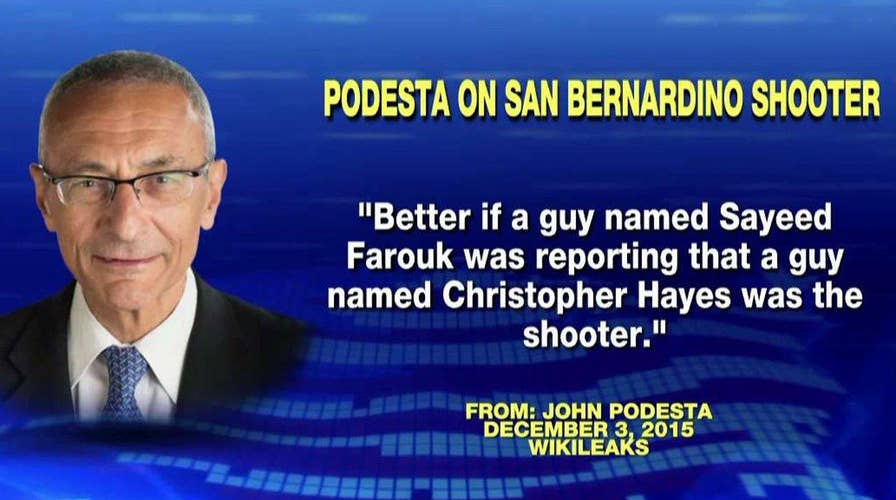Notable revelations in 9th WikiLeaks dump of Podesta emails
Kristin Fisher outlines information found in alleged emails from the Clinton campaign chairman
Hillary Clinton’s aides and supporters expressed concern about public perception of the Clinton family’s charitable enterprise, with one left-leaning pundit writing that Clinton seemed unaware of the “danger” of her “money problem,” according to purported emails disclosed by Wikileaks on Sunday.
Opinion columnist Brent Budowsky was chiefly concerned with the potential damage that could be caused by the publication of Peter Schweizer’s 2015 book “Clinton Cash,” emails show. The bestseller explored whether there was a relationship between donations made from foreign entities to The Clinton Foundation and the contracts that were approved by then-Secretary of State Clinton for foreign companies. Hillary Clinton has denied the allegations of quid pro quo.
“I have been vigorously criticizing the Schweizer book, but I absolutely believe the Clintons have a money problem, and they are not fully aware of the danger of this,” Brent Budowsky wrote in an April 26, 2015, email to Clinton campaign chair John Podesta.
Budowsky warned that congressional Republicans could try to ensnare Clinton in “a long-term perjury trap and endless cycles of news stories.” He was also troubled the public could grow weary “talking about Clinton issues and may simply want to move on.”
“The net net of everything HRC has done since leaving the State Department is that her trust numbers have fallen dramatically,” Budowsky wrote.
Budowsky advised ending “ALL foreign donations to the foundation NOW.”
Bill Clinton announced in August that, if Hillary won the presidency, the foundation would cease to accept foreign or corporate money and Bill would resign from the board. Hillary Clinton has not served on the board since April 2015.
“The views I express here represent the overwhelming majority of private views of Democrats I know, but I am not convinced they have expressed this to her, as directly as I am expressing this here……” Budowsky wrote.
But it may have initially appeared to Podesta that Budowsky’s worries were unfounded. A May 2015 New York Times poll apparently found that controversies regarding The Clinton Foundation since the publication of Schweizer’s book were gaining little traction with the public. Communications Director Jennifer Palmieri sent an email to Podesta advising him of a conversation she recently had with an unnamed individual who had access to an early version of the Times poll and its accompanying story.
“He also said the foundation story wasn’t breaking through with real people,” Palmieri wrote.
But internal polls taken just two months later painted a different picture.
“Secretary Clinton’s top vulnerability tested in this poll is the attack that claims as Secretary of State she signed off on a deal that gave the Russian government control over 20 percent of America's uranium production, after investors in the deal donated over $140 million to the Clinton Foundation,” a June report from the Benenson Strategy Group concluded. “Half of all likely voters (53 percent) are less likely to support Clinton after hearing that statement and 17 percent are much less likely to support her after that statement.”
Sunday’s release was the ninth day of WikiLeaks’ steady disclosure of purported emails stolen from Podesta. The anti-secrecy website has said it has 50,000 of Podesta's emails, though only about 12,000 have been made public so far.













































